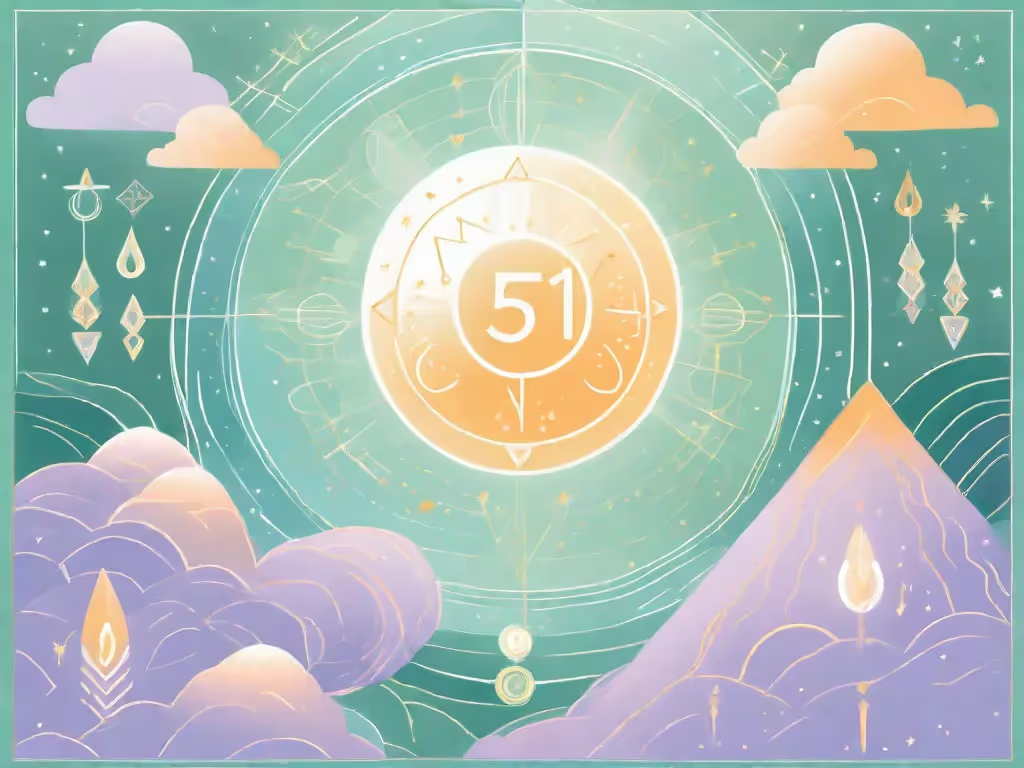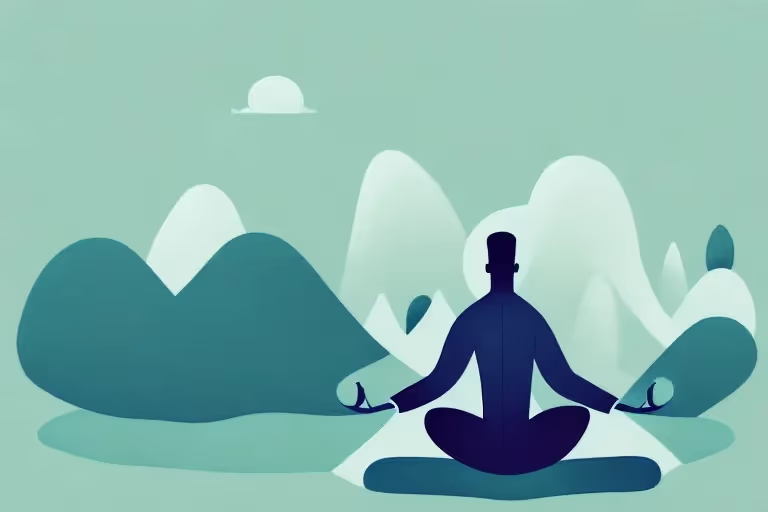Imagine lying in bed, exhausted after a long day, desperately needing a good night's sleep. You reach for that tiny pill bottle on your nightstand and pop a melatonin pill, hoping it will work its magic and help you drift off into dreamland. But the next morning, you wake up feeling groggy, foggy, and almost as tired as you were the night before. Welcome to the world of a melatonin hangover.
Understanding Melatonin and Its Uses
Before we dive into the mysterious realm of melatonin hangovers, let's first understand what melatonin is and why it has become a popular sleep aid. Melatonin is a hormone produced naturally by the pineal gland in your brain. It helps regulate your sleep-wake cycle, also known as your circadian rhythm. In some cases, melatonin supplements are used to assist people with sleep disorders or jet lag, helping them adjust to new time zones.
What is Melatonin?
Melatonin is often referred to as the "sleep hormone" because of its role in regulating sleep. It is secreted by the pineal gland in response to darkness, signaling to the body that it's time to sleep. The level of melatonin in your body naturally rises in the evening and decreases in the morning, helping you maintain a regular sleep schedule.
But melatonin is not just limited to its sleep-regulating effects. It also plays a crucial role in other physiological processes. For instance, melatonin has been found to have antioxidant properties, meaning it helps protect cells from damage caused by harmful molecules called free radicals. This antioxidant action may contribute to its potential benefits in managing migraines and reducing the severity of symptoms.
Furthermore, research has suggested that melatonin may have anxiolytic properties, meaning it could help reduce anxiety. Studies have shown that melatonin supplementation may lead to decreased anxiety levels in individuals with certain anxiety disorders. However, it is important to note that more research is needed to fully understand the extent of melatonin's anxiolytic effects and its potential as a standalone treatment for anxiety.
In addition to its role in sleep regulation and potential antioxidant and anxiolytic properties, melatonin has also been explored for its effects on seasonal affective disorder (SAD). SAD is a type of depression that occurs during specific seasons, typically winter, when there is less natural sunlight. Research suggests that melatonin may help alleviate symptoms of SAD by regulating the body's internal clock and improving mood. However, further studies are required to determine the optimal dosage and long-term effects of melatonin for this particular condition.
Common Uses of Melatonin
In summary, melatonin is primarily known for its role in regulating sleep and helping individuals with sleep disorders or jet lag. However, it is also being investigated for its potential benefits in managing migraines, reducing anxiety, and alleviating symptoms of seasonal affective disorder (SAD). While preliminary research is promising, more studies are needed to fully understand the mechanisms behind these potential uses and to establish appropriate dosages and treatment protocols.
The Concept of a Melatonin Hangover
Now, let's put the spotlight on the phenomenon of a melatonin hangover. While melatonin is generally safe and well-tolerated, some people experience undesirable side effects that mimic the symptoms of a hangover.
Defining a Melatonin Hangover
A melatonin hangover can be described as a collection of symptoms that occur upon waking after taking melatonin the night before. These symptoms may include daytime sleepiness, grogginess, difficulty concentrating, and a general feeling of being "off" throughout the day. The severity of a melatonin hangover can vary from person to person.
Symptoms of a Melatonin Hangover
The symptoms of a melatonin hangover can resemble those experienced after a night of heavy drinking. You might wake up feeling sluggish, with a headache, and a sense of mental haze. Other common symptoms include fatigue, dizziness, irritability, and even mild nausea. While these symptoms are usually temporary, they can be unpleasant and disruptive to your daily routine.
The Science Behind a Melatonin Hangover
Now, let's delve into the science behind why melatonin can sometimes leave you feeling less refreshed instead of revitalized.
How Melatonin Affects the Body
Melatonin works by binding to receptors in the brain that control your sleep-wake cycle. When you take a melatonin supplement, it signals to your body that it's time to sleep. However, unlike natural melatonin production, the supplement can sometimes disrupt your body's natural balance, leading to lingering effects the next day.
Why Melatonin Can Cause a Hangover
The exact reasons why some people experience a melatonin hangover are not fully understood. However, it is believed that taking too high of a dosage or taking melatonin at the wrong time can disrupt your body's sleep patterns, resulting in grogginess and other hangover-like symptoms.
How to Avoid a Melatonin Hangover
Don't worry! There are several steps you can take to minimize the chances of experiencing a melatonin hangover.
Proper Dosage of Melatonin
One of the key factors in avoiding a melatonin hangover is taking the right dosage. It is recommended to start with the lowest effective dose possible, usually around 0.5 mg to 1 mg. If you find that this dose is not sufficient, gradually increase it, but always stay within the recommended range of 1 mg to 5 mg. Remember, more is not always better when it comes to melatonin.
Best Time to Take Melatonin
The timing of melatonin intake is crucial. It is recommended to take melatonin about an hour before you plan to go to bed. This allows the supplement enough time to kick in and synchronize with your natural sleep-wake cycle. Avoid taking melatonin too close to the time you want to wake up to prevent residual grogginess.
Lifestyle Changes to Prevent Melatonin Hangover
To further enhance your sleep quality and prevent a melatonin hangover, consider incorporating some healthy habits into your bedtime routine. Create a relaxing environment in your bedroom, limit exposure to bright screens before bed, engage in regular exercise, and maintain a consistent sleep schedule. These lifestyle changes can help optimize your natural production of melatonin and promote better sleep.
When to Seek Medical Advice
In most cases, a melatonin hangover is temporary and can be managed with the suggestions mentioned above. However, if you experience persistent symptoms or have concerns about melatonin use, it is always recommended to seek medical advice. A healthcare professional can evaluate your specific situation and provide personalized guidance.
Persistent Symptoms of Melatonin Hangover
If you find that the symptoms of a melatonin hangover persist despite adjusting your dosage and timing, it's important to consult a healthcare professional. They can help determine whether an underlying issue or medical condition might be causing your symptoms.
Potential Risks and Side Effects of Melatonin
While melatonin is generally considered safe for short-term use, it can have potential risks and side effects. Common side effects include drowsiness, headache, dizziness, and nausea. Melatonin should not be taken by individuals with certain medical conditions, such as autoimmune disorders or epilepsy, without consulting a healthcare professional.
So, the next time you reach for that melatonin pill to help you sleep, be mindful of the potential for a melatonin hangover. Remember to start with a low dose, take it at the right time, and incorporate healthy sleep habits into your routine. By doing so, you can unlock the benefits of melatonin without the unwanted side effects.
Looking for more ways to enhance your sleep? Aura Health App provides a range of guided meditations and sleep stories to help you relax and unwind. Discover the power of mindfulness and unlock a restful night's sleep with Aura.
Aura is Your All In One App for Meditation, Mindfulness Wellbeing
Find peace every day with one app for your whole well-being. There is no one-size-fits-all solution to mental well-being. Aura is the first all-in-one wellness app that learns how to best help you. Discover an endless library of expert-created tracks for your well-being, all taught by the world’s best coaches, therapists, and storytellers. With Aura's personalized recommendations, you can find peace every morning, day and night.



.webp)






.avif)

%20(1).avif)


.avif)
.avif)
.webp)


.avif)


















































































































.avif)

















.svg)









